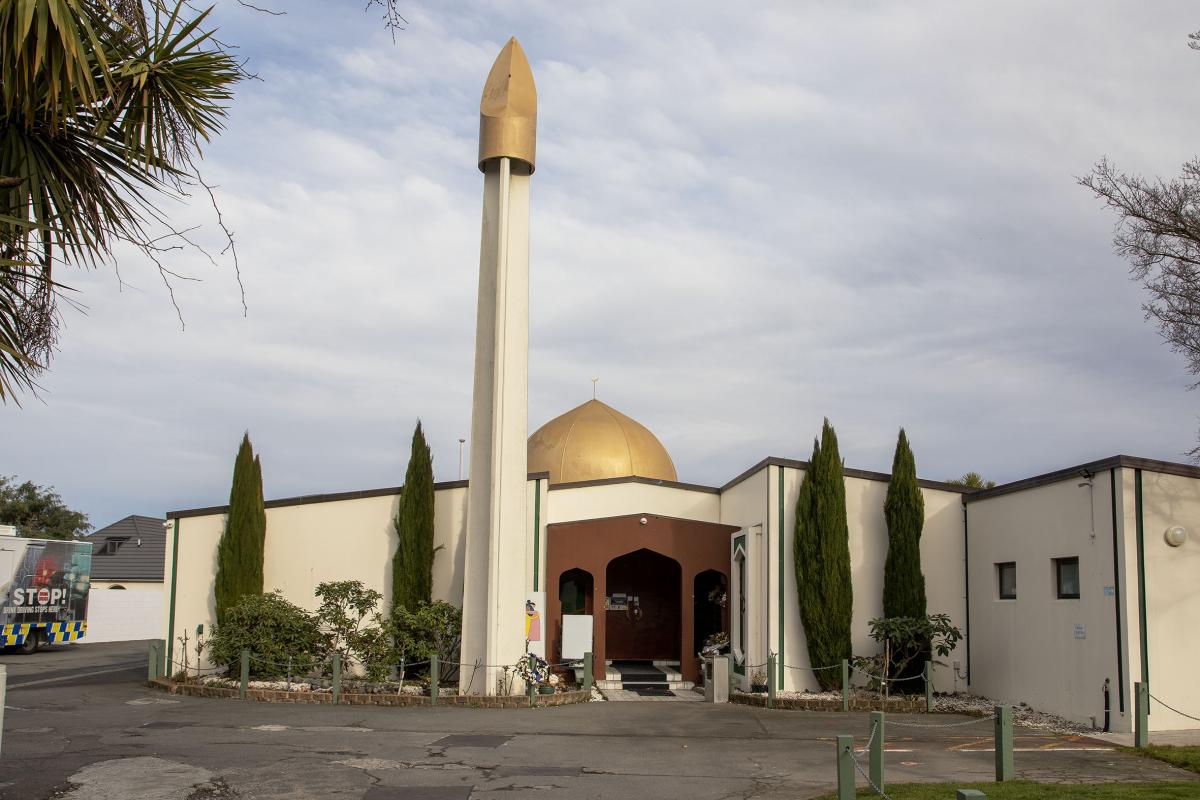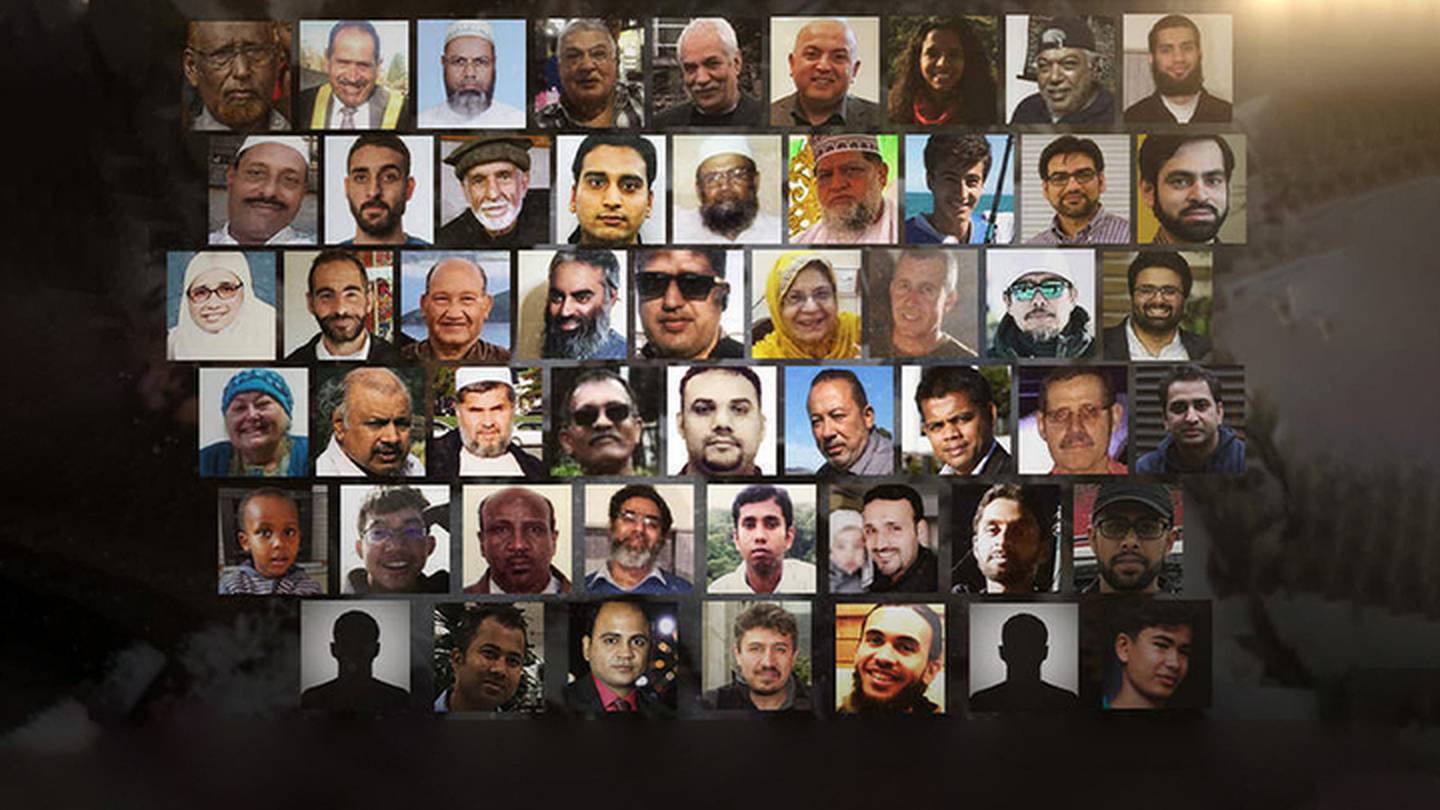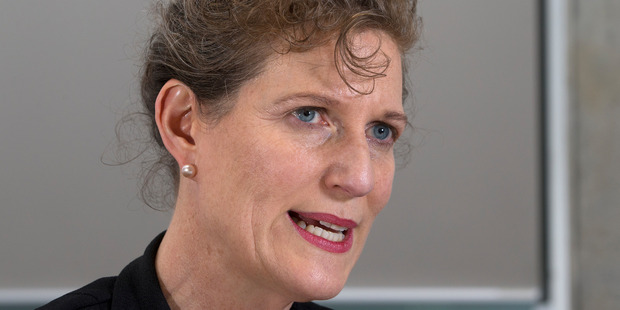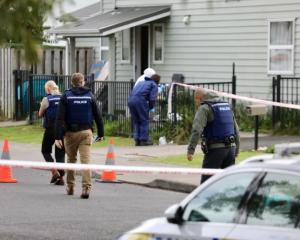
But nothing could have been done to have stopped the March 15 attacks in 2019, which left 51 Muslims dead, and were not the result of failures by public sector agencies involved in New Zealand's counter-terrorism effort.
- Terrorist considered Dunedin attack during Muslim holiday
- 'We should have been safe here' - mosque leaders respond
The inquiry did, however, find "insufficient attention" was given by New Zealand Police over whether one of the killer's gaming friends - who knew about his racist and Islamophobic views - was an appropriate referee for his firearms licence - while also concluding that police's administration of the firearms licensing system "did not meet required standards".
Police Commissioner Andrew Coster today "unreservedly apologised" for the firearms licence failures, while Prime Minister Jacinda Ardern said though nothing could have stopped the attack, there were still failings at a high level.
"And for that I apologise," she said today.
Other than the email sent by Australian national Brenton Harrison Tarrant to the Parliamentary Service at 1.32pm on March 15, 2019 – just eight minutes before he opened fire at the Al Noor Mosque – there was no other information provided or otherwise available to any relevant public sector agency that "could or should have alerted them to the terrorist attack".
The Royal Commission report into the attacks at the Al Noon and Linwood mosques was made public at 2pm today.
Survivors of the attacks have already been told of the commission's findings and Muslim leaders hope that the recommendations will help prevent future terror attacks.
The inquiry, chaired by Commissioner Sir William Young, investigated the gunman's activities before the attacks, including his travel in New Zealand and around the world, how he obtained firearms, his use of social media, and what relevant state sector agencies knew about him before the attacks.
It also looked at what actions state agencies took, what more they could have done, and whether some of them, such as intelligence agencies, were too busy looking at Islamic fundamentalism at the expense of the threat of white nationalism.
Some 400 interviews were conducted including one with the 29-year-old gunman, who was jailed for life without parole in August this year after previously pleading guilty to 51 charges of murder, the attempted murder of another 40 people and one terrorism charge.

The findings
The 792-page report by the Royal Commission of Inquiry into the terrorist attack was released finally this afternoon.
It makes 44 recommendations which cover five key areas relating to the counter-terrorism effort - the "old-fashioned", inefficient paper-heavy firearms licensing system, the ongoing needs of those most affected by the terrorist attack, New Zealand's response to an increasingly diverse population, and implementing the commission's recommendations.
The Government has agreed in principle to implement all 44 recommendations, including a new ministerial role – Minister for National Security and Intelligence – who would be given responsibility and accountability to lead and coordinate the country's counter-terrorism effort.
The report also calls for the establishment of a new national intelligence and security agency that is well-resourced and legislatively mandated to be responsible for strategic intelligence and security leadership functions.
It will need to strike a balance, the report concludes, between the privacy of individuals and the safety of others and to "understand the social licence for public sector agencies to engage in counter-terrorism and countering violent extremism activities".
"We conclude there was an inappropriate concentration of counter-terrorism resources on the threat of Islamist extremist terrorism [ahead of the March 15, 2019 attacks]," the report said.

Many of the 44 recommendations focus on how to prevent, detect and respond to current and emerging threats of violent extremism – and how the new national intelligence and security agency would operate and work with communities, civil society, government, and the private sector.
A large part of the commission's report deals with intelligence matters.
The commission was chiefly concerned with how much authorities - notably the New Zealand Security and Intelligence Service (NZSIS) and Government Communications and Security Bureau (GCSB) knew or should have known about the threat Tarrant posed before he launched his attack.
The NZSIS is tasked with ensuring New Zealand's national security, and has a brief to identify, investigate and disrupt terrorist acts. The GCSB is an information collection and protection mission, and its efforts are largely directed outside New Zealand.
Until March 15 last year, both agencies had focused their counter-terrorism on Islamic extremism - with white supremacy then considered only a fringe threat.
SIS Director-General Rebecca Kitteridge said while no failures were found within government agencies, "many" lessons could be learned and "significant areas" needed change.
She also apologised to the Muslim community after hearing how they felt "targeted by the security agencies" or felt "under suspicion" when they were not.
The terrorist's background
The inquiry, which interviewed Tarrant behind bars, delves deep into his background to try and understand what influenced his extreme views, why he chose New Zealand for a terrorist attack, and how he avoided coming to the attention of authorities.
While the report named him in the first instance, he is referred throughout as "the individual".
He displayed racist behaviour from a young age, the inquiry found, primarily concerned about immigration and Muslims moving to Western countries. He was an avid internet user and online gamer, with few childhood friends.
"His life experiences appear to have fuelled resentment and he became radicalised, forming extreme right-wing views about people he considered a threat. Eventually, he mobilised to violence," the report says.
He used the $A457,000 ($NZ481,000) given to him by his father Rodney before he died by suicide in April 2010, to travel extensively, firstly exploring New Zealand and Australia in 2013, and then around the world between 2014 and 2017.
He visited dozens of countries, including North Korea, China, Russia, Georgia, Turkey, Israel, India, Serbia, and Indonesia, as well as many other African, Asian, European, and South American nations.
There was no evidence, however, that he met with extremist groups while oversees, investigated potential targets, or carried out any training.
The inquiry did not believe that the travel fuelled his racist views to any great extent, rather concluding: "Put simply, he travelled widely because he could and had nothing better to do."
But he did visit right-wing internet forums, subscribe to right-wing YouTube channels, and "read a great deal about immigration, far right political theories and historical struggles between Christianity and Islam".
He was a follower and prominent commenter on the Facebook pages of the United Patriots Front and The True Blue Crew far right groups based in Australia.
He also visited controversial online bulletin boards 4chan and 8chan.
A copy of Norwegian terrorist Anders Breivik's manifesto was later found on the gunman's SD memory card in a drone he used to fly over the Al Noor Mosque for pre-attack reconnaissance.
The inquiry found the Norwegian, who killed 77 people in July 2011 in a bomb attack in Oslo and at a summer camp for children on the island of Utoya, to have been a significant influence on his thinking.
Firearms licence failings
The inquiry was sure that Tarrant came to New Zealand in August 2017 with a terrorist attack in mind. Based in Dunedin, eight months earlier he had emailed the Bruce Rifle Club near the city asking if it was still operating.
And just 15 days after landing in New Zealand, he took his first step towards obtaining a firearms licence by paying the application fee.
Four days later, he undertook and passed the required Firearms Safety Course.
He was then required to provide two referees – one of whom needed to be a near relative.
The terrorist identified his sister Lauren Tarrant and a gaming friend who he'd played online games with over a decade but had only been physically in the company of for about 21 days over that entire period.
But New Zealand Police did not accept his sister as a referee because she was in Australia and could not be spoken to in person.
In the end, the gaming friend's parent was added as a referee.
On October 4, 2017, a Dunedin-based vetting officer visited Tarrant at his Somerville St home, interviewed him and inspected his storage facilities.
Tarrant said he wanted a firearms licence so he could go hunting, target shooting, and sport shooting – a common explanation for applicants in New Zealand, police say.
He claimed to be a responsible person, not having any enemies, and had "now met people at pistol and rifle clubs".
The vetting officer recorded that Tarrant "did not show any unusual behaviour during the visit or interview" and recommended that his application be approved.
The referees were then interviewed by a different, Waikato-based vetting officer at their home on October 30 in 2017 and November 2 in 2017. Neither referee disclosed "anything adverse" about Tarrant and vouched for him as being a "fit and proper person".
But the gaming friend, the inquiry found, was "well aware" of Tarrant's extremist political opinions and that he was racist and Islamophobic. They did not tell the vetting officer.
It was also revealed that the gaming friend was known to police and NZ Customs having been caught trying to import a knuckleduster knife - considered an offensive weapon - in 2014, and a year later, four firearms parts without the necessary permits. He had been given a verbal warning by police and the items were seized.
The former Dunedin District Arms Officer approved the licence application on November 16 in 2017. On December 4 of that year with his new licence having arrived, Tarrant bought his first firearm.
The gunman's planning
On the day of the massacre, the murderer had six firearms including semi-automatic shotguns and two military-style semi-automatic rifles along with "a large amount" of ammunition and four "incendiary devices" he planned to use to burn down the mosques when he finished shooting.
The inquiry found "insufficient attention" was given to whether the gaming friend and their parent knew Tarrant well enough to be appropriate referees.
And the commission concluded that the police administration of the firearms licensing system "did not meet required standards".
"The reasons for this include a lack of guidance and training for licensing staff and incomplete guidance for dealing with applications where nominated referees cannot be interviewed in person," the report says.
It was also critical of "lax, open to easy exploitation" gun laws, especially around the regulation of semi-automatic firearms.
The former personal trainer gym enthusiast used steroids to bulk up and was solely focused on planning and preparing his attack, the inquiry found. He was isolated and avoided social situations.
"For the more than 18 months he lived in New Zealand preparing for the terrorist attack, he remained resolutely focused, attempting to maintain operational security from which there were only limited lapses," the report notes.
While living in New Zealand, he made at least 14 donations to far right and anti-immigration groups and individuals, including AU$2,308.97 directly to Identitarian Movement Austria's leader Martin Sellner.
Tarrant joined the Otago Shooting Sports Rifle and Pistol Club in February 2018, but only visited twice after becoming a member of Bruce Rifle Club where he shot more than 27 times.
While generally described by gun club members as polite and courteous, not talking much, if at all, about politics.
But a few members raised aspects of his behaviour, which with hindsight, may be significant, including the fact he usually shot while standing up and went through a large amount of ammunition.
His primary interests appeared to be firing at extremely fast rates and changing magazines quickly, the told the inquiry.
Gunman accidentally shot himself in Dunedin
And on July 13, 2018 he had a close shave.
While cleaning a rifle barrel in his lounge, a round of ammunition exploded, sending fragments into his right eye and thigh, requiring treatment at Dunedin Hospital's emergency department.
He was discharged later that day and although worried that the incident might draw attention, hospital staff did not tell police.
On the night of the deadly attacks, he phoned his mother across the Tasman and they spoke for 28 minutes.
She later told police he seemed relaxed and happy but made a point of telling her that he loved her, which was out of character. He also spoke for over an hour with his sister – also saying he loved her.
Analysis by police found his self-funded terror attack cost him an estimated $60,000 – with about half spent on guns and gun-related items.
The inquiry concluded that Tarrant is appropriately labelled as "a lone actor".
"There is no evidence that anyone else was aware of his plans or provided personalised encouragement," the commission found.
"It is, however, likely that his thinking was affected by what was said in far right online communities and other far right material he was about to source from the internet."











